The screening of six films of the Lumiere brothers at Watson’s Hotel, Bombay, on 7 July 1896 marked the beginning of India’s engagement with the moving picture. It also laid the foundation of a remarkable body of non-fiction cinematic work. B.D. Garga’s From Raj to Swaraj: The Non-Fiction Film in India traces the century-old history of newsreels and documentaries in the country. Beginning with an account of the early works of people like Hiralal Sen, J.F. Madan and Harishchandra Bhatwadekar who pioneered the Newsreel, Garga goes on to describe what were among the first non-fiction films–Jyotish Sarkar’s coverage of the anti-partition demonstration in Calcutta, 1905, and Charles Urban’s spectacular film on the 1911 Delhi Durbar. Garga also chronicles the landmark events in the development of non-fiction films in India: the propaganda films during the First and Second World Wars, the passing of the Cinematograph Act in 1918 and the establishment of the Censor Board, Lowell Thomas’s journey across the country to film Romantic India, Louis de Rochemont’s controversial coverage of police repression in 1930, the series of "The March of Time’ films on India, the founding of the Film Advisory Board and the pioneering efforts of the Information Films of India, and the extraordinary coverage of communal riots during the partition in 1947. Post-independence, the author throws light on the role of the Films Division and on the work of Mohan Bhavnani, Jean Bhownagary and Paul Zils who created a sound base for future film-makers. He also looks at the powerful body of works by women directors like Suhasini Mulay, Deepa Dhanraj and Sumitra Bhave, among others, which courageously addresses a number of contentious social and political issues. Critically examining the factors that have stunted the development of documentaries in the country, Garga lauds the efforts of film-makers like Anand Patwardhan to keep the movement going in the face of myriad distribution, logistical and financial hurdles. A ground-breaking study by one of India’s most respected film historians, From Raj to Swaraj not only explodes many existing myths but also reveals astonishing new details about a genre of films that has been overshadowed by the Razzmatazz surrounding its more glamorous counterpart, the masala fiction film.
From Raj to Swaraj: The Non-Fiction Film in India
by B.D. Garga
$44.10
$49.00
In stock
Free & Quick Delivery Worldwide
All orders amounting to US$ 50 or more qualify for Free Delivery Worldwide. For orders less than US$ 50, we offer Standard Delivery at $14 per book.
ABOUT THE AUTHOR B.D. Garga
B.D.Garga (1924-2011) was one of India's most eminert film scholars and a founder member of the National Film Archive, Pune. and made his first documentary, Storm over Kashmir, in 1948-49. He made over fifty documentary films.
Between 1953 and 1957, Garga worked eith various film units in Europe and at the Mosfilm Studios, Moscow. He produced the golden jubilee of Indian cinema in 1962. In 1967, he was invited by the UNESCO to be on the committee of experts on the 'History of World Cinema'. He server as a member of the Film Advisory Board for many years and was honoured by the Film Federation of India for his contribution to the growth of conema in the country. In 1996, Garga received the first V. Shantaram Award for Lifetime Achievement in the field of documentary films at the Mumbai International Film Festival.
reviews
0 in total
Review by Anonymous
Be the first to review “From Raj to Swaraj: The Non-Fiction Film in India” Cancel reply
You must be logged in to post a review.
Bibliographic information
Title
From Raj to Swaraj: The Non-Fiction Film in India
Author
Edition
1st ed.
Publisher
ISBN
0670081183
Length
xxiv+214p.
Subjects
more by B.D. Garga see more
The Art of Cinema: An Insider’s Journey through Fifty Years of Film History
As a film-maker and film ...
$31.50
$35.00
similar bookssee more
Historicity of Vedic and Ramayan Eras: Scientific Evidences from the Depths of Oceans to the Heights of Skies
This book makes a case to ...
$54.00
$60.00
British Military Policy in India, 1900-1945: Colonial Constraints and Declining Power
The decline of British ...
$25.20
$28.00

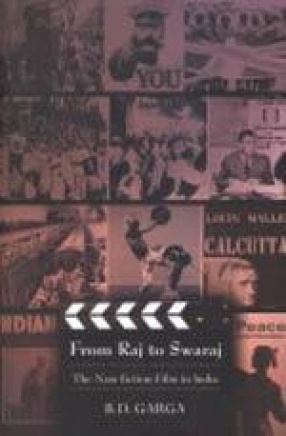
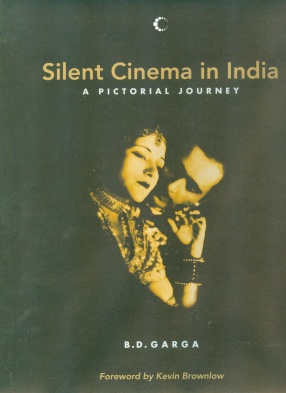

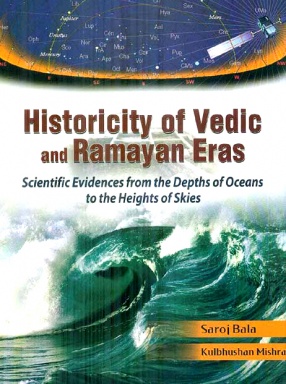
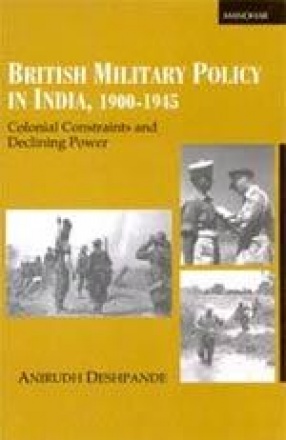
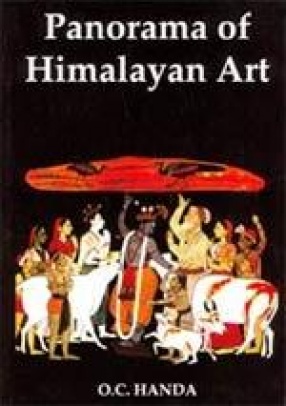
There are no reviews yet.